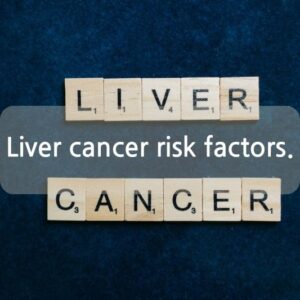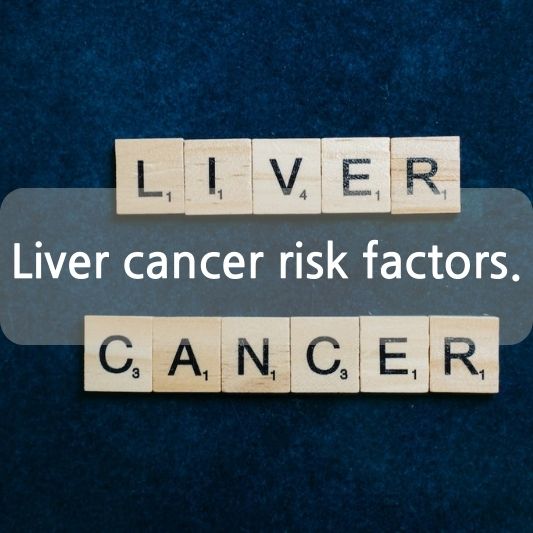Liver cancer, though often preventable, remains a significant health concern globally. Understanding the risk factors associated with liver cancer is crucial for early detection, prevention, and effective treatment. In this article, we delve into the various factors that contribute to the development of liver cancer and explore strategies for mitigating its risk.

Introduction to Liver Cancer
Liver cancer, also known as hepatic cancer, originates in the liver cells and can metastasize to other parts of the body. It poses a substantial threat to public health, ranking among the leading causes of cancer-related deaths worldwide. While several factors contribute to its development, certain risk factors significantly increase the likelihood of developing liver cancer.
Understanding Liver Cancer Risk Factors
Genetic Factors
Genetic predisposition plays a critical role in the development of liver cancer. Individuals with a family history of liver cancer are at a heightened risk of developing the disease. Moreover, certain inherited conditions, such as hereditary hemochromatosis and Wilson’s disease, increase susceptibility to liver cancer.
Chronic Liver Diseases
Chronic liver diseases are primary risk factors for liver cancer. Hepatitis B and C infections are leading causes of liver cancer globally. These viral infections lead to inflammation and damage to the liver cells, increasing the risk of cancerous growths. Additionally, cirrhosis, a condition characterized by scarring of the liver tissue, significantly elevates the risk of liver cancer.
Lifestyle Choices
Certain lifestyle choices contribute to the development of liver cancer. Excessive alcohol consumption over an extended period can damage liver cells and increase the risk of liver cancer. Obesity and its associated metabolic complications also elevate the risk of developing liver cancer. Furthermore, smoking has been linked to an increased incidence of liver cancer.
Environmental Factors
Exposure to certain environmental factors can heighten the risk of liver cancer. Aflatoxins, toxic substances produced by molds found in grains and nuts, are potent carcinogens that can induce liver cancer. Additionally, occupational exposure to chemicals such as vinyl chloride and arsenic increases the likelihood of developing liver cancer.
Screening and Prevention Methods
Early detection through regular screening is crucial for effectively managing liver cancer. Individuals at high risk, including those with chronic liver diseases or a family history of liver cancer, should undergo routine screenings to detect any signs of cancer at an early stage. Moreover, adopting a healthy lifestyle, including limiting alcohol consumption, maintaining a healthy weight, and avoiding exposure to environmental toxins, can help reduce the risk of liver cancer.
Conclusion
In conclusion, liver cancer is a formidable health threat that requires comprehensive understanding and proactive measures for prevention and early detection. By recognizing the various risk factors associated with liver cancer and adopting healthy lifestyle choices, individuals can mitigate their risk and improve their overall health outcomes.
FAQs about Liver Cancer Risk Factors
Can liver cancer be hereditary?
Yes, individuals with a family history of liver cancer are at an increased risk of developing the disease.
How does obesity contribute to liver cancer?
Obesity is associated with metabolic disturbances that can lead to liver inflammation and increase the risk of liver cancer.
What are aflatoxins, and how do they contribute to liver cancer?
Aflatoxins are toxic substances produced by molds commonly found in grains and nuts. Prolonged exposure to aflatoxins can increase the risk of liver cancer.
Is hepatitis B vaccination effective in preventing liver cancer?
Yes, the hepatitis B vaccine is highly effective in preventing hepatitis B infection, which is a significant risk factor for liver cancer.
Can liver cancer be prevented entirely?
While it may not be entirely preventable, adopting a healthy lifestyle and undergoing regular screenings can significantly reduce the risk of developing liver cancer.
Learn more about liver cancer!
